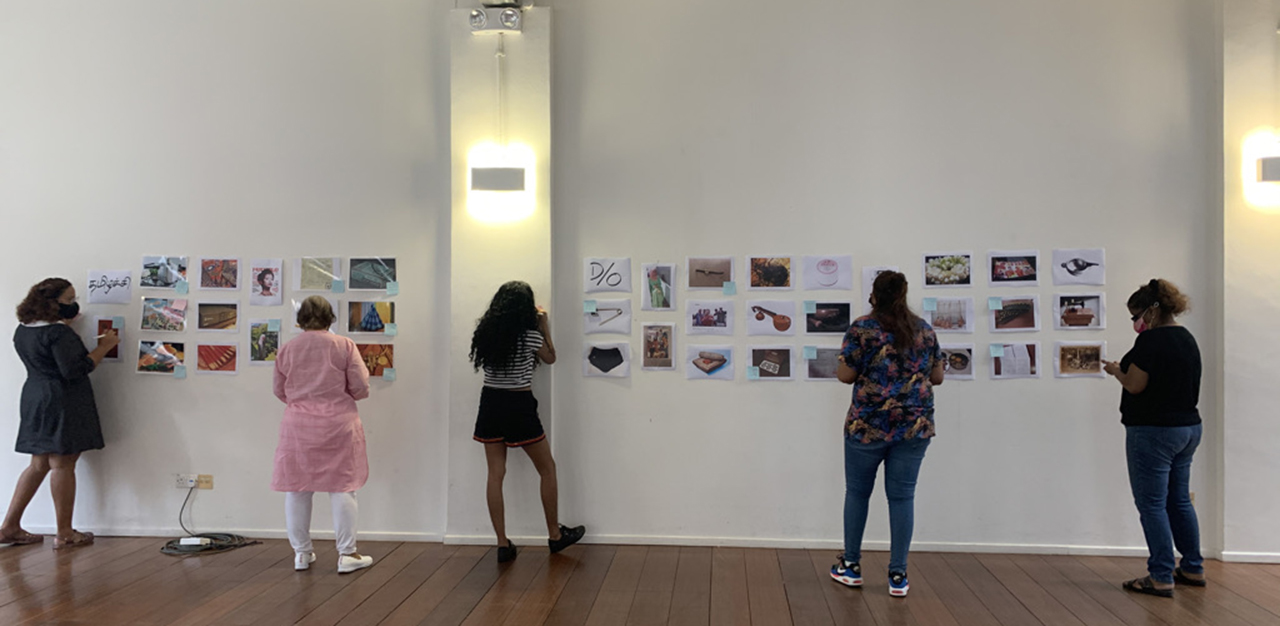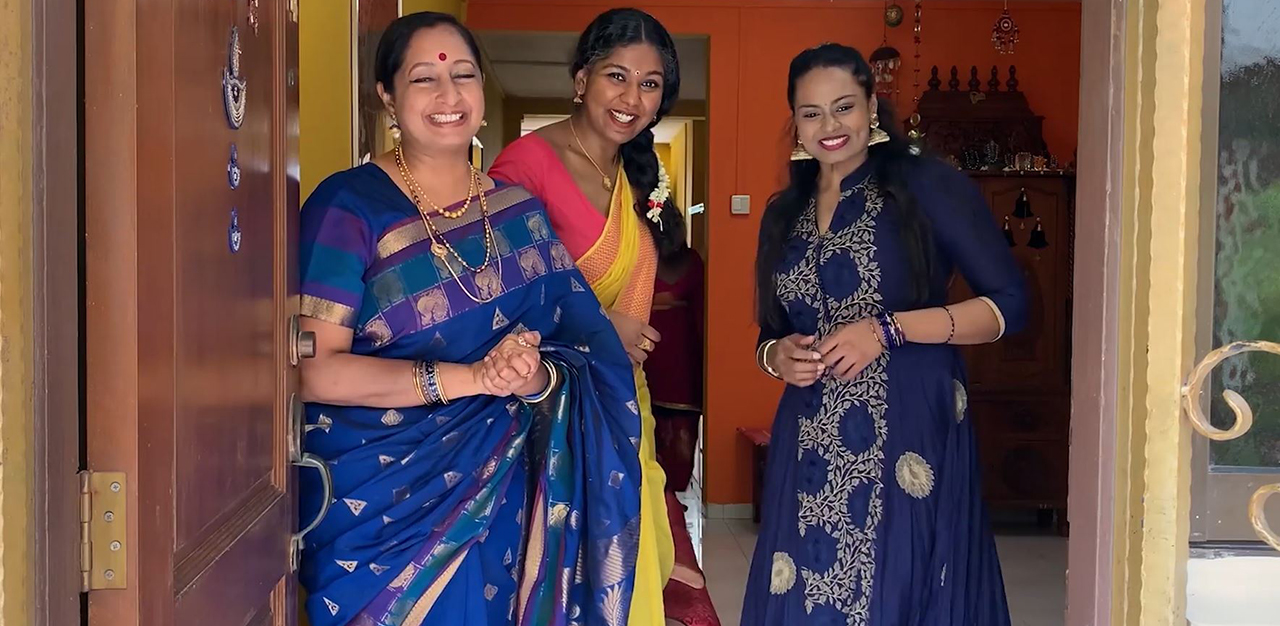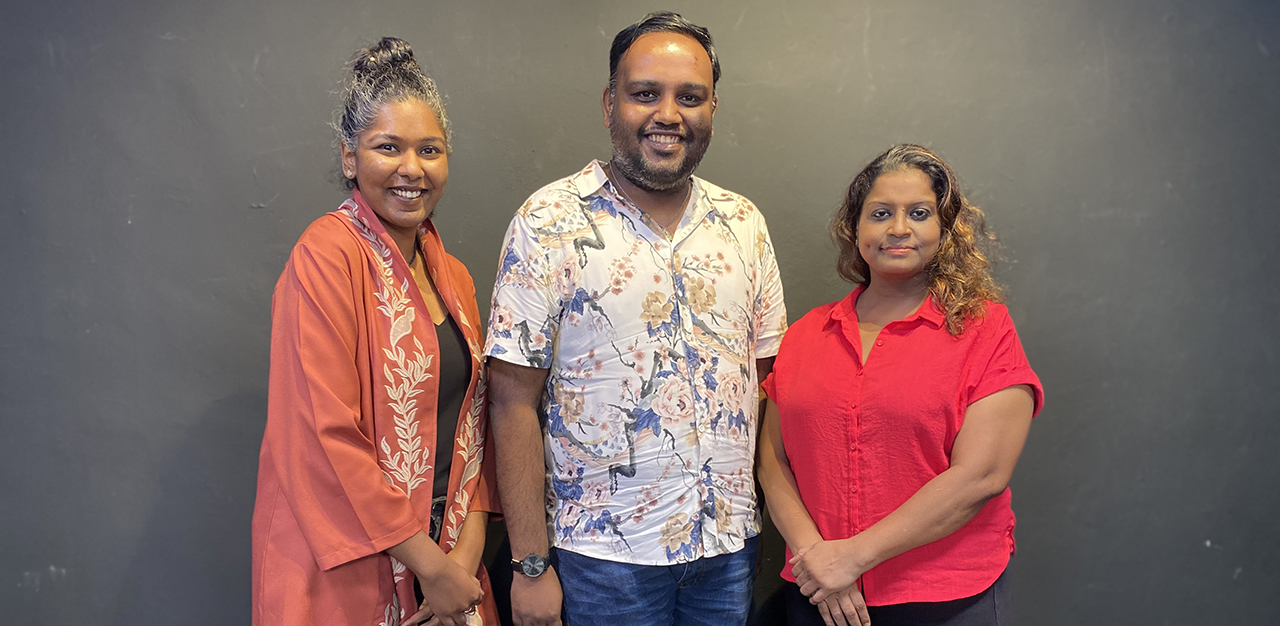“Within, and in spite, of these structures of patriarchy, of hierarchy, Tamil women are very proud to be Tamil women.” – Vithya Subramaniam
The first work created for the N.O.W. Festival is Thamizhachi: A Digital Museum of Tamil Women Under Construction, conceptualised by curator-researcher Vithya Subramniam, and supported by the directorial work of Grace Kalaiselvi; Raj Thiagaras, who writes and translates; and intern Sai Lalitha Aiyer.
The digital museum was created after a series of consultative workshops with more than 20 self-identified, Singaporean Tamil women, who contributed objects and wrote accompanying notes for each item. The final set of 29 objects were “not simply selected on some notion of aesthetic or cultural ‘value’” writes Ms Vithya in the museum text, but instead “consciously refuse essentialised, homogenised, and/or tokenistic representations of the diverse ways of being a Singaporean Tamil woman.”

She notes, however, that each object alone is not enough to understand or represent a whole person, and that not everything in the museum applies to all Tamil women.
“When people visit the museum, it’s not just about seeing what objects have been listed, but it’s about reading personal notes from the participants themselves, about how this object has popped up in their lives and all these memories they have,” says Ms Vithya. “Fundamentally it’s about making human, to hear someone and to recognise their voice and notice their presence.”
Visit the digital museum to view the 29 objects, and on the Persons page, read about each participant and their “ways of being a Thamizhachi”.

The second is Rasanai: An Invitation to Appreciate, a multi-sensory, livestreamed performance directed and co-written by Ms Kalaiselvi, alongside co-writers Ms Vithya and Mr Thiagaras.
Ms Vithya explains that the subtitle ‘An Invitation to Appreciate’, is a call to the audience to notice and then appreciate the Tamil woman in her space, the way she already is.
“It’s not to only highlight special cases, or to only highlight something wonderful and grand as contributions, but to see the everyday ways of the Tamil woman as something already full,” she expounds. “To recognise her labour in mundane ways, and also in historical periods and episodes. That’s kind of the guiding principle, to see her hand at work all the time.”
Director and co-writer Ms Kalaiselvi says that Rasanai has seen a number of iterations since it was first written, evolving from a lecture performance to its current form: “It is still a historical exploration. But there’s a narrative that’s now pulled into it, so it’s become more of a play. There is a beautiful narrative story.”
In the process of creating the play, all three collaborators have had to draw a lot from their personal histories, says co-writer Mr Thiagaras: “It’s about personal family, and the struggles that are going on with self-identity, with relationships, with trying to remember, or the process of not trying to forget about things.”

He adds that it was also about looking at the Singaporean Tamil woman’s personal histories, and not just what has been written in textbooks or recorded by institutions.
“It’s our turn to reclaim these narratives and to link them back to our personal lives and say, ‘Either this makes sense, or this doesn’t make sense to me, and I will now make the choice,'” Mr Thiagaras elaborates. “Rasanai kind of encapsulates that very beautifully; in the personal stories that the characters are going through and the choices they are making in the act of remembering, or not forgetting.”
Tickets are available for the Rasanai performance at 7.30pm on 24 July. Consider taking the evening up a notch with the fundraiser dinner, which was created by MasterChef Singapore Season 2 contestant Vasunthara Ramasamy. Donations collected will be directed to four charitable causes, including T:>Care. The home-delivered, three-course meal can be ordered here.

To watch the full-length discussion, click here. For some highlights from the hour-long conversation, watch the clips below.
Open-call to self-identified Singaporean Tamil women
Curating the objects
Women’s lives under construction
Recognising Tamil male privilege
Feeling invisible
Making visible the Singaporean Tamil woman, without excluding other races
Embodying the histories of the Singaporean Tamil woman
A multi-sensorial experience
Reveling in the occluded hand of the Singaporean Tamil woman
Gourmet meal to appreciate
Tying in with Festival of Women
Join the conversations on TheHomeGround Asia’s Facebook and Instagram, and get the latest updates via Telegram.













